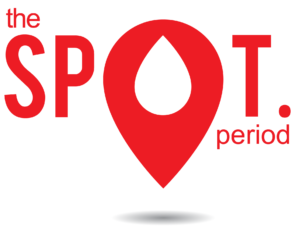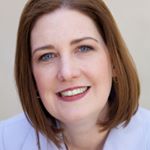Nation’s first menstrual hub set to open this month in Germantown
 February 11, 2021
Category: Featured, Long, Purpose
February 11, 2021
Category: Featured, Long, Purpose
This month, No More Secrets Mind Body Spirit Inc. will open the nation’s first menstrual hub, The SPOT Period, located in Germantown, which stands for Safety, Programming, Optimal, Transformation.
“It’s really a welcoming place to provide acceptance, understanding, education and mental hygiene resources and care to marginalized communities so that they can really be able to reach their full potential,” Founder Lynette Medley said in a phone interview in advance of the official opening, which is slated for Saturday, February 20.
The only challenge that she faced going into this was the stigma in the community around menstrual care and the ideal of a menstrual hub opening. “I wanted to be intentional in calling it a menstrual hub. I wouldn’t water it down to a women’s center or empowerment center,” she said. “I was intentional about keeping it as a menstrual hub because the focus is on menstrual care and uterine care.”
 Concurrently, her nonprofit does about 250 deliveries of menstrual supplies per week (about 50 a day) throughout Philadelphia.
Concurrently, her nonprofit does about 250 deliveries of menstrual supplies per week (about 50 a day) throughout Philadelphia.
Medley hopes that more people will visit the drop-in center to get resources and other items because they’ve made that impression in the community. “They understand that they can come and be vulnerable and have crucial conversations in a non-judgmental setting because we’ve created that platform already,” she said.
“Most of the time, we’re having these conversations in their neighborhoods, at their doorsteps, in their homes, in our cars when they can’t get wi-fi and they need to be able to connect to other resources.”
Because of COVID, The SPOT Period is only taking about eight to 10 appointments a day to adhere to social distancing guidelines. Medley hopes that many women and community centers visit. “It doesn’t have to be the menstruator herself. This is going to be a place where people can get products. Many times, we get calls from churches, community centers, block captains who just need resources,” she said. “So, this would be a way for them to get those donations and those products and be able to take it back to their communities.”
The 2,500 square foot space will be equipped with offices, a reception area, computer room, storage space for menstrual supplies, as well as access to clean water and operable toilets for women and girls who do not have reliable access to them.
"As a Black woman in America, it's already known that we really do not feel safe most of the time in our communities, our environment and then our social justice system. Safety correlates with vulnerability; you have to feel safe in your environment."
The center also has a “Breonna Taylor” safe room, where educational seminars and panel discussions will take place.
“As a Black woman in America, it’s already known that we really do not feel safe most of the time in our communities, our environment and then our social justice system. Safety correlates with vulnerability; you have to feel safe in your environment,” Medley said. “Most of the populations that we’re talking to on these corners in our neighborhoods do not feel safe. We wanted to create this place in honor of the memory of Breanna Taylor, who was in her home where it’s supposed to be this safe space and she was murdered.”
Medley said this type of hub does not exist in our city, especially around menstrual care which is a taboo subject. Black and brown people suffer at a higher rate from abnormal cycles and do not talk about a normal menstrual cycle. She seeks to give women the information they need to understand what is normal, and to let them be their own activists in having conversations with their healthcare providers.
Diva Cares International has provided sponsorship for the Breonna Taylor room and will be supplying a monthly donation of 200 Diva Menstrual cups. Period, The Menstrual Movement, will be donating cobranded first period kits that include products for one cycle, printed education materials, a journal, and stickers all in a reusable bag.
Medley said her nonprofit already had relationships with those sponsors.
“They’ve been with me since the beginning; they’ve been very supportive of working with marginalized communities and BIPOC organizations.”
She said she created the framework for other organizations nationwide to follow suit.
“It’s ironic, I had an intern who’s a med student this (past) summer and she said, ‘In my whole rotation, even around reproductive health, we never talked about the menstrual cycle. It was just one class.’ So even when we’re talking about women’s health or menstruators, we don’t really talk about the menstrual cycle,” Medley said.
Conversations that usually aren’t held in other places will be held at her hub. For example, everything else about the menstruator’s body including infant mortality rates, PCOS, fibroids and endometriosis — and other conversations will follow.
When asked about the possibility of legislation passing in the U.S. — as it recently did in Scotland — to provide free period products, Medley said that must happen with beginning steps.
“Scotland was working on that for about four to six years,” she said. “Initially it was really the conversation that menstrual supplies are a necessity and not a luxury overall and United States hasn’t done that yet. The next thing was, ‘Okay, let’s make sure that they’re in the schools.’ The United States hasn’t done that yet. And then the next phase was ‘Let’s make them free to everybody.’ So, it’s like these phases and stages.”
By even starting a conversation about a hub opening, there is going to be a normalizing and destigmatizing of conversations around menstrual cycles.
“I think this might be that push. It might be the catalyst,” Medley said. “So, when our policy-makers are bringing it to the floor, they can say, ‘Hey, look, we even have safe spaces now in our community. Once we start talking about it, the more it will drive our legislation to move the law to get to that place. But I think we’re at the beginning stage.”
The hub will host speakers to further discuss issues, including academic partners from Thomas Jefferson University, Dr. Allison Casola, and Dr. Shawana Moore, and political figures including State Representative Darisha Parker.
To participate in The SPOT Period, community members must reserve a time. Upon arrival and ongoing throughout the COVID-19 pandemic, the team will take each person’s temperature and provide masks as needed. They will then provide them with resources that can be requested via an online form, or do an assessment with them to assess what supplies and services are needed.
The SPOT Period will operate Monday 10 a.m. – 6 p.m., Wednesday 12 – 8 p.m., Friday 10 a.m. -6 p.m. and Saturday by appointment only. It will evolve with the community through a process that best meets their needs. After-hours needs will be taken on a case-by-case basis, but it is strongly recommended to submit requests ahead of time.
The SPOT Period is located at 4811 Germantown Avenue, Suite 101, Philadelphia, PA 19144.
Trending News










